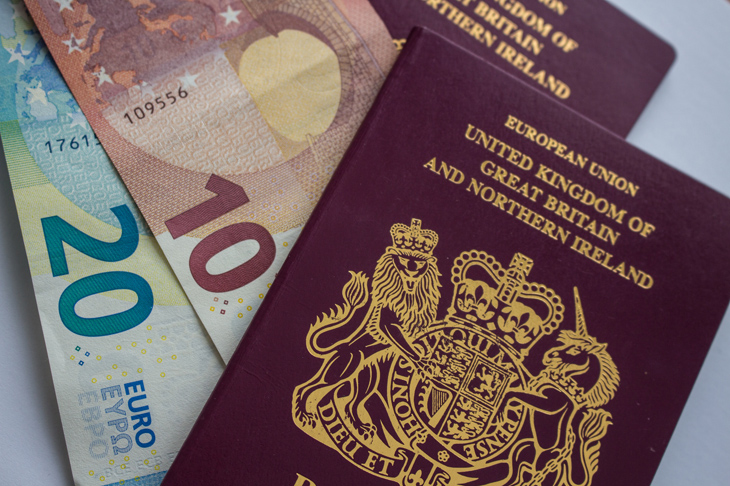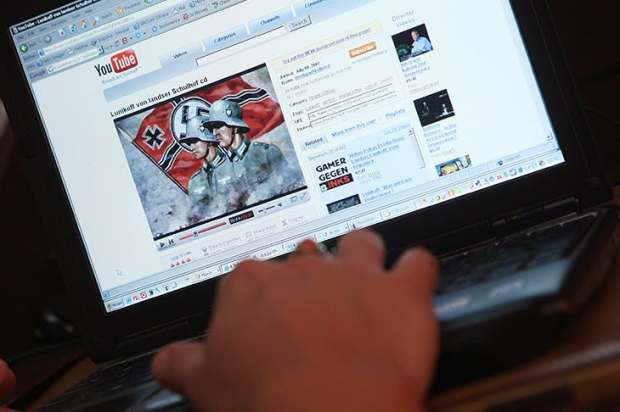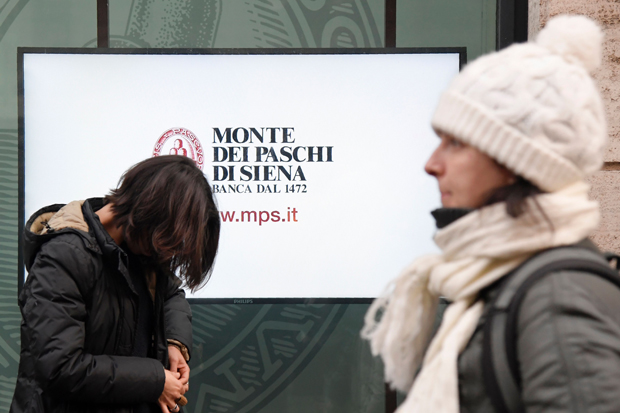As usual for August, I’m in France, where the news in brief is ‘Euro up, Macron down’. The youthful French president, who swept to power with two-thirds of the second round vote in May, has seen his approval rating plunge to 36 per cent — at the time of writing, 2 per cent worse than Donald Trump’s latest score in the US. Macron’s move to slash housing benefits for millions of lower-income citizens, including students, is one factor that has brought his honeymoon with French voters to an abrupt end, though his proposed labour law reforms are still playing well with employers. Two-thirds of French small-business owners say they are satisfied with his performance so far and optimistic that he will improve the economy — an accolade never achieved by his socialist predecessor François Hollande, and only briefly by Nicolas Sarkozy before that.
As for the euro, it has gained 12 per cent against the dollar this year, recently trading back above its symbolically important January 1999 launch rate of 1.1789. It has also soared against the pound — as British holidaymakers may have noticed, especially if they bought their euros at Southampton airport when Moneycorp was reported last week to be offering a cruel exchange rate of €0.90 to the pound.
The currency trend is bad for French exporters and a dampener on growth, but good for continental self-confidence. The euro has even been perky against the safe-haven Swiss franc, indicating a real swing of investor sentiment towards the eurozone, where growth is running at around 2 per cent (compared to 1.7 per cent expected for the UK this year) and unemployment is at its lowest since 2009.
That last statistic, at 9.1 per cent, is still double the rate of joblessness in the UK — reminding us that everything is relative in economic performance. What we’re watching is a region burdened with huge structural problems, inflexible labour markets and the straitjacket of an ill-conceived single currency, but doing a little better than it was before and with at least one dynamic new leader, Macron, pushing a pro-business policy agenda. And that makes a relatively good impression compared to what Le Figaro calls ‘La perte de leadership de l’Amérique de Trump’ — and what to foreign observers must look like the blundering uncertainty of Britain’s Brexit negotiating strategy.
Role model
How sad that Dame Helen Alexander, the former Economist chief executive and first (and so far only) female president of the CBI, has died of cancer aged 60. The Economist said she ‘relied on a quiet wisdom, listening not lecturing’ but her consensual style made her a persuasive role model for women striving to reach the top of the business anthill — strong in arguing for more women on boards while also presenting a thoughtful face of big business in response to popular anger after the financial crisis. When she gave her first interview after taking up the CBI post in 2009, she was also brave enough to start on the front foot by criticising the size of the public sector and its pension liabilities.
But one issue on which I suspect she could not make much impact — either from her CBI podium or as chair of the remuneration committees of both Rolls-Royce and Centrica — was that of excessive boardroom pay. That’s because the men in suits who predominate in that arena still think alike and remain wilfully deaf to change, however elegantly advocated.
Barcelona to Paris
In a quiet season for business news, the giant cesspit that is the world of elite football can be relied upon to provide a money story with a pungent whiff to it. I refer to the transfer of the 25-year-old Brazilian known only as Neymar from Barcelona to Paris St Germain for a world-record fee close to £200 million. When Neymar was bought by Barcelona from Santos of Brazil in 2013, a £200 million break clause was inserted in his contract in the belief that no club in the world could possibly afford to buy him out. But PSG has done so even though Spanish football authorities refused to facilitate the payment, in the belief that it might breach ‘financial fair play’ rules designed to prevent clubs spending beyond their means.
The complexities of this tale are probably too much for Spectator readers. Suffice to add that Neymar’s contracts are brokered by his father — and that both Neymars are reportedly under investigation by tax authorities, as was Barcelona after the transfer from Santos. As for PSG, it is France’s most famous football club but with a stadium capacity of just 48,000 you might wonder how it can possibly afford a player who will cost €30 million a year on top of his transfer fee. The answer is that football at this level has nothing to do with what fans want or can afford, and everything to do with impenetrable deal-making; and by the way, did I mention PSG is owned by a state investment company from Qatar?
Time for lunch
Never mind the money stuff, I hear you say, where are the restaurant tips? Last August I lightened the column by naming places to eat across France — and I gathered that many readers enjoyed the diversion. So I’ll do the same again this year, but with emphasis on what the French call rapport qualité prix to reflect the current mood of caution in consumer spending. And my first pick is Le Vieux Logis at Tremolat, a slightly faded de luxe hotel on a wooded loop of the River Dordogne. It offers a five-course menu with the sommelier’s wine choices at €125 (or £139 if you’ve just flown in from Southampton) but clearly that’s not my value-for-money suggestion, even though the dining terrace was filled with English lunchers. My more frugal party enjoyed a €17 menu du jour at the nearby Bistrot d’en Face (under the same ownership), then strolled into the Vieux Logis’s topiary garden for a satisfying petit café.
Got something to add? Join the discussion and comment below.
Get 10 issues for just $10
Subscribe to The Spectator Australia today for the next 10 magazine issues, plus full online access, for just $10.
You might disagree with half of it, but you’ll enjoy reading all of it. Try your first month for free, then just $2 a week for the remainder of your first year.














Comments
Don't miss out
Join the conversation with other Spectator Australia readers. Subscribe to leave a comment.
SUBSCRIBEAlready a subscriber? Log in